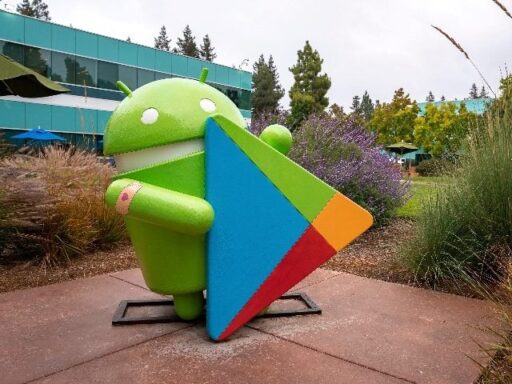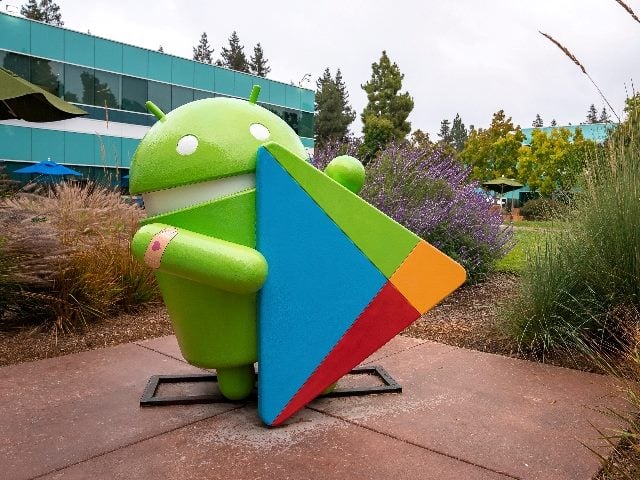Originally Posted on “Marketing” – Google News by Pierre DeBois
The Gist
- The rise of AI. How advancements announced at Google I/O 2024 attempt to redefine search.
- Blue links … and now AI? Adapting to AI-driven search engines. Traditional SEO tactics are becoming less effective, shifting focus to brand-centric content.
- AI and content strategy. Insights from marketing experts: original, value-driven content is crucial for AI recognition and successful marketing.
Google’s announcement of new AI features for search last week at Google I/O 2024 serves as a wake-up call for SEO and marketing professionals. They highlight the shift away from traditional keyword-centric strategies to a focus on brand storytelling and AI adaptation. Further, as Google continues to innovate with its Gemini AI models, marketers are urged to rethink their approaches in the evolving search landscape.
“This is a rude awakening to all SEOs,” said Mary Owusu, CEO of OwnMyNiche.com and LEADSABLE. “SEO as we know it has been too easy to manipulate. The idea of ranking for keyword-rich content is gone. SEOs need to become brand storytellers. In the past, ‘doing SEO’ meant creating keyword-rich content in primarily written format to rank on Google. In the AI world, ‘doing SEO’ will be creating brand-centric content in various formats across whatever platforms the brand’s customer hangs out.”
At Google I/O, Google announced a host of AI features with significant implications for search. Marketers weighed in with CMSWire on the search strategies that the industry should pay attention to as consumer adoption of AI broadens.
Google’s announcements at Google I/O have always generated developer buzz, but this year’s I/O has introduced a variety of Gemini AI models to address different AI modeling needs. Developers who use Google Cloud services have more features to explore, with several key features impacting Google search. Marketers should pay special attention to how these features highlight the AI trends taking shape now.
What Search Tactics Are Emerging With AI’s Arrival?
Much of Google I/O 2024 centered on upcoming features scheduled for release from now through the summer, such as Gemma 2, the next generation of its small language model Gemma. These features expand tokenization and parametrization.
Many features hold promise for Gemini. People are already using Gemini and its competitors, like Claude and OpenAI, for information searches. Due to the buzz and steadily increasing usage among consumers and professionals, AI is increasingly being treated as a search engine, enhancing its status as a “recommendation engine.” People are using prompt queries to solve personal workflows and find information, much like traditional search engines helped find information online.
However, queries must incorporate the latest prompt engineering techniques to make the right AI model recommendations. Search engines typically rely on links to rank results in the SERPs — a concept well known among business owners, marketers and developers. AI models make associations of their tokenized prompts based on trained data, so users must craft their queries with precision to accommodate the underlying AI engine.
New features such as multistep reasoning and AI Overviews provide more user control over their queries. Marketers must consider how these features will be adopted in user information search behavior, as they summarize the models involved, reducing the need for extensive iteration to explain what users are looking for.
(Editor’s note: we’re not entirely impressed with AI’s arrival in Google search; at least yet):
Related Article: Google I/O 2024: AI to Redefine the Future of Search
Attribution Challenges and New World for Search
Marketers shared their thoughts with us through LinkedIn after hearing Google’s announcements, along with other news such as the arrival of ChatGPT4o.
Rand Fishkin, co-founder of SparkToro, notes how AI complicates the growing reality in search — the complication of attribution.
“The rise of generative AI answers, the bias to native content in social feeds, and the shift from a world where users are willing to click and visit websites to one where they’re not are all connected.” Fishkin claims the solution for this is what his company calls “Zero-Click Marketing.”
Creators, entrepreneurs, marketers and influencers need to move away from posting links that lead directly to action or over-investing in SEO-targeted content to earn traffic toward un-attributable, hard-to-measure investments in brand marketing and message-spreading across the web, he added.
If Google won’t send sites traffic, don’t try to rank, Fishkin recommended. Instead, work to influence the generative AI answer, the snippets that appear, the Reddit posts people still click, the brand mentions, and lexical associations between search terms and your product names.
“Weirdly enough, digital marketing of the 2020s is becoming more like traditional marketing of the 20th century,” Fishkin said. “No marketer in 1965 expected drivers to see a freeway billboard for vacuums and immediately alter their route to swing by the store and buy one. Instead, they relied on the ad’s impact to influence future demand and brand preference. Similarly, in 2024, Google’s results are shifting away from an opportunity to change the driver’s route to an opportunity for influencing future demand and brand preference.”
Related Article: Will Search Be Generative AI or Blue Links? Actually It’s Both
Embrace AI Search and Original Content
Marketing specialist Jeff “Mr. Marketology” Beale believes that marketers must embrace AI-powered search and adapt their strategies to leverage the new AI capabilities. “This means understanding how users are searching with AI tools and creating content that aligns with those search patterns,” he said. “The search engines have already incorporated artificial intelligence into their algorithms, so it is important to be at the helm of the market shift.”
Alison Ver Halen, content marketing and SEO strategist and president of AV Writing Services, indicated that content needs to explain its purpose so that AI incorporating intent content will likely reference it.
“One of the most important (but also most overlooked) aspects of SEO is that Google prioritizes original content,” she explains. “One of my big problems with ‘generative’ AI is that it doesn’t ‘generate’ anything. It scrapes existing content from the web and repurposes it. If you’re just putting a prompt into ChatGPT, then copying and pasting what it gives you onto your website, you’re not going to win any points with Google — or with the people who see you’re just saying the same thing everyone else is saying.”
In order to provide value, Ver Halen added, your content needs to answer the all-important question: “So what?” That means, she said, in addition to providing information and updates, your content needs to provide your unique perspective on each topic you cover. What does this mean for your audience? How can they apply it in the real world?
“The answer is what’s going to provide value, get Google’s attention and convince the real people reading your content that you’re the real deal,” Ver Halen said.
Ryan Levander, founder of analytics firm Rednavel Consulting, is also concerned about attribution, suggesting investigating current contact points with customers. He notes that one of the earliest evolutions of search, including Google’s earliest incarnation of AI, Search Generative Experience (SGE), has significant impact on search and content strategy.
“I would say accuracy in marketing analytics is getting worse every year,” Levander explains, “especially with fewer users needing to click with SGE on the rise…You need to have a content strategy that matches the user journey. If you only create top-of-funnel content (go after high-volume keywords), then SGE usually affects you more with clicks dropping. The same happened for featured snippets and rich results.”
Marketers should make their content as uniquely valuable as possible so the user has a reason to click to read your article, he said, adding, “Make sure your analytics are set up correctly so that you can see blogs that lead to revenue.”






